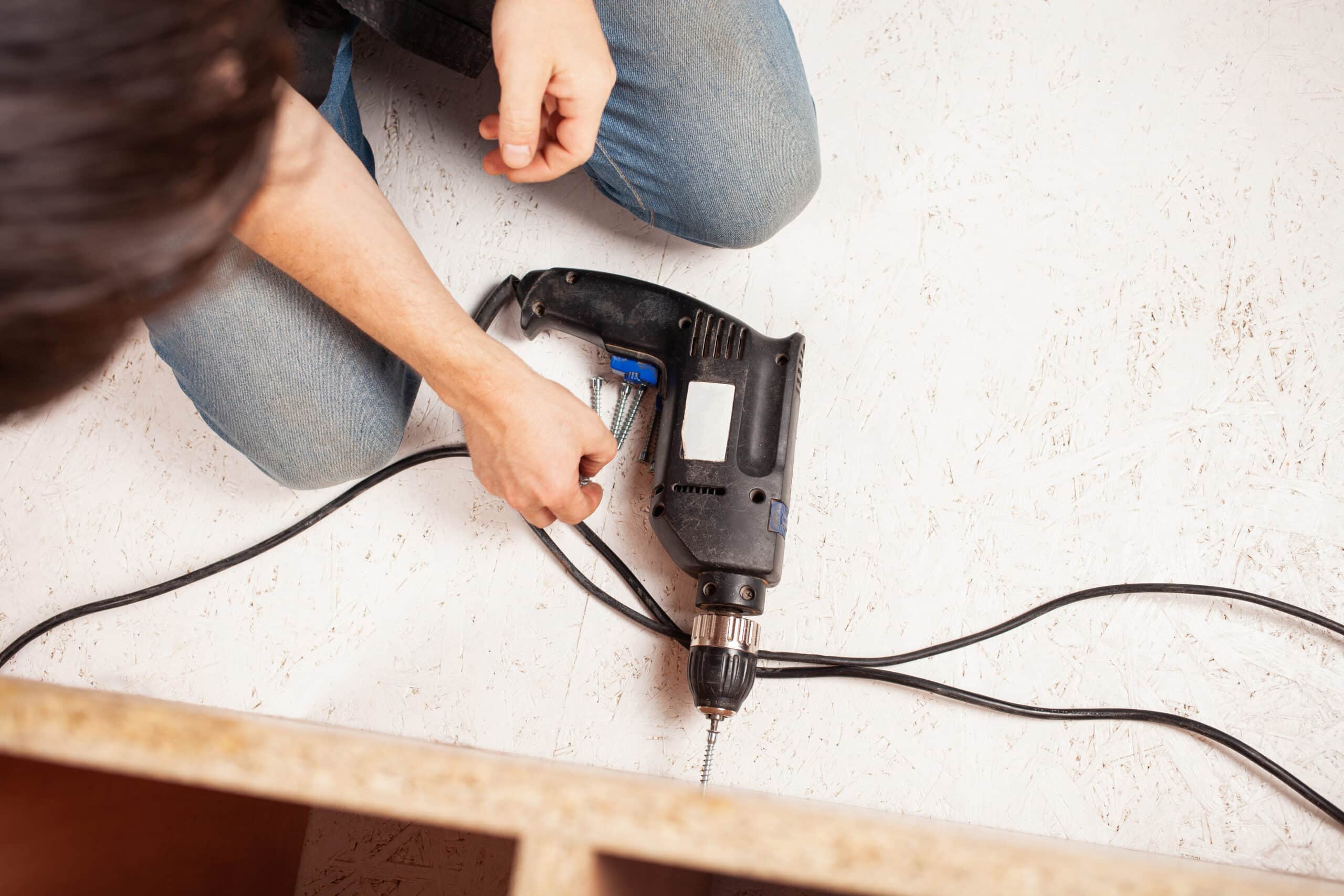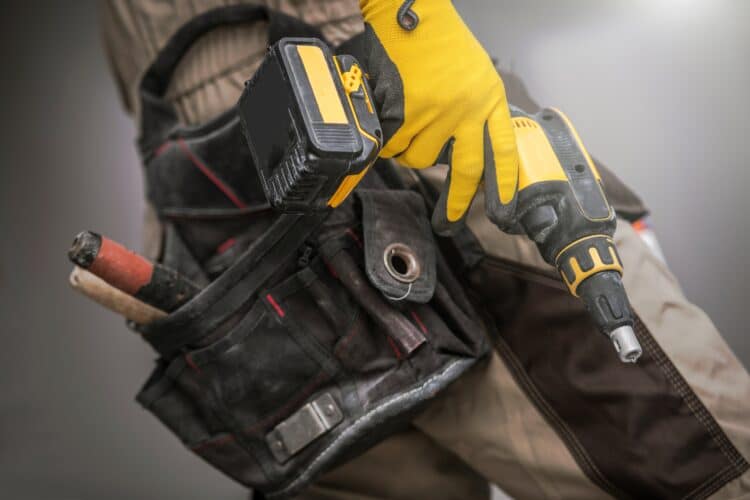Should I Buy a Cordless or Corded Drill?
Key Takeaways
- Cordless drills have improved performance with lithium-ion batteries, higher torque, and advanced features.
- Cordless drills offer convenience, portability, and easier maneuverability.
- Corded drills are more powerful, cost-effective, and don’t have battery limitations.
When it comes to choosing a drill, one of the first decisions you’ll need to make is whether to go with a cordless or corded option. Both types of drills have their advantages and disadvantages, and the right choice for you will depend on your specific needs and preferences. In this article, we will explore the pros and cons of cordless and corded drills to help you make an informed decision.
The Pros and Cons of Cordless Drills
Let’s start by examining the pros and cons of cordless drills. Cordless drills have become increasingly popular in recent years, thanks to advancements in battery technology. Here are some of the benefits of choosing a cordless drill:
Improved Performance
One of the significant advantages of cordless drills is their improved performance with lithium-ion batteries. These batteries offer higher power output and longer run times compared to traditional nickel-cadmium batteries. Additionally, cordless drills with brushless motors provide higher torque, making them ideal for heavy-duty applications.
Convenience and Portability
Cordless drills offer the convenience of being able to use them anywhere without being tethered to an outlet. This feature makes them particularly useful for projects in areas with limited or no access to power sources. Additionally, cordless drills are more portable and easier to maneuver, making them a popular choice for contractors and DIY enthusiasts.
Advanced Features
Cordless drills often come with advanced features like kickback control and customizable smart controls. These features enhance safety and allow users to tailor the drill’s performance to their specific needs. Furthermore, cordless drills generally have a more refined design, are lighter in weight, and offer a wider range of options from different brands.
Longevity and Maintenance
While cordless drills do require battery replacements over time, they tend to have a longer overall lifespan compared to corded drills. Cordless drills also require less maintenance, with occasional brush changes being the only necessary upkeep. Additionally, they are generally more affordable, with high-quality DIY models starting under $50.
Despite these advantages, there are some drawbacks to consider before purchasing a cordless drill:
Battery Limitations
One of the main drawbacks of cordless drills is that their batteries can lose their charge over time. This means you’ll need to ensure that the batteries are charged before each use, which can be an inconvenience. Additionally, battery packs can increase the overall cost of the tool, especially if you need to purchase additional batteries for longer projects.
Bulkier and Heavier
Cordless drills tend to be bulkier and heavier than their corded counterparts. While they are still portable, the added weight and size can make them less comfortable to use for extended periods. This is something to consider if you anticipate using the drill for long projects or if you have concerns about hand or arm fatigue.
The Pros and Cons of Corded Drills
Now, let’s explore the pros and cons of corded drills:
Power and Performance
Corded drills are generally more powerful than cordless drills, making them better suited for heavy-duty projects. They provide consistent power and performance throughout their use, with no need to worry about battery life. Corded drills are particularly useful for tasks that require higher top speeds, such as concrete drilling with a hammer drill.
Cost-Effective
Corded drills are generally more affordable compared to cordless models. High-quality DIY corded drills can be found for under $50, making them a cost-effective option for those on a budget. Additionally, corded drills have a longer lifespan and require less maintenance, as they don’t rely on batteries that need replacement over time.
Limitations
While corded drills have their advantages, they do come with some limitations:
Restricted Mobility
One of the main drawbacks of corded drills is their restricted mobility due to the power cord. You’ll need to have access to a power outlet for the drill to function, which can limit where and how you use it. Additionally, there is a risk of tangling the wire or accidentally drilling into the cord, which can be a safety concern.
Noisier Operation
Corded drills tend to be louder than cordless drills due to their direct connection to a power source. If noise level is a concern, you may want to consider using hearing protection when operating a corded drill.
Which Drill Should You Choose?
Now that we’ve explored the pros and cons of both cordless and corded drills, it’s time to answer the question: Should you buy a cordless or corded drill?
If you prioritize performance, versatility, and convenience, a cordless drill may be the better option for you. The improved battery technology and advanced features of cordless drills make them ideal for a wide range of projects, especially those that require mobility or are located in areas with limited power access.
On the other hand, if you primarily work on heavy-duty projects and require consistent power and performance, a corded drill may be the more suitable choice. The higher power output and lower cost of corded drills make them a great option for those on a budget or who need a reliable tool for specific tasks.
In the end, the decision between a cordless or corded drill will depend on your specific needs, preferences, and budget. Consider the type of projects you’ll be tackling, the level of convenience you require, and the amount of power you need. By carefully evaluating these factors, you’ll be able to make an informed decision that will serve you well in your future DIY or professional endeavors.
Related Websites:
FAQs:
Q: What are the benefits of using cordless drills?
Cordless drills offer portability and convenience, allowing you to work in various locations without the need for electrical outlets or cords. They are ideal for tasks that require mobility and are perfect for light household projects.
Q: What are the limitations of cordless drills?
Cordless drills have limitations such as limited battery life, which may require recharging or having multiple batteries. They may also have less power compared to corded drills, making them less suitable for heavy-duty tasks.
Q: What are the benefits of using corded drills?
Corded drills provide a constant power supply, ensuring uninterrupted work without worrying about battery life. They also offer higher torque, making them ideal for heavy-duty construction and tasks that require more power.
Q: What are the limitations of corded drills?
Corded drills are limited in terms of mobility as they require an electrical outlet. They are less suitable for tasks that require working in different locations without access to power sources.
Q: What factors should I consider when deciding between cordless and corded drills?
When deciding between cordless and corded drills, you should consider factors such as the intended use of the drill, the importance of portability and mobility, the required power and torque for your tasks, and the need for long-term usage without interruption.





